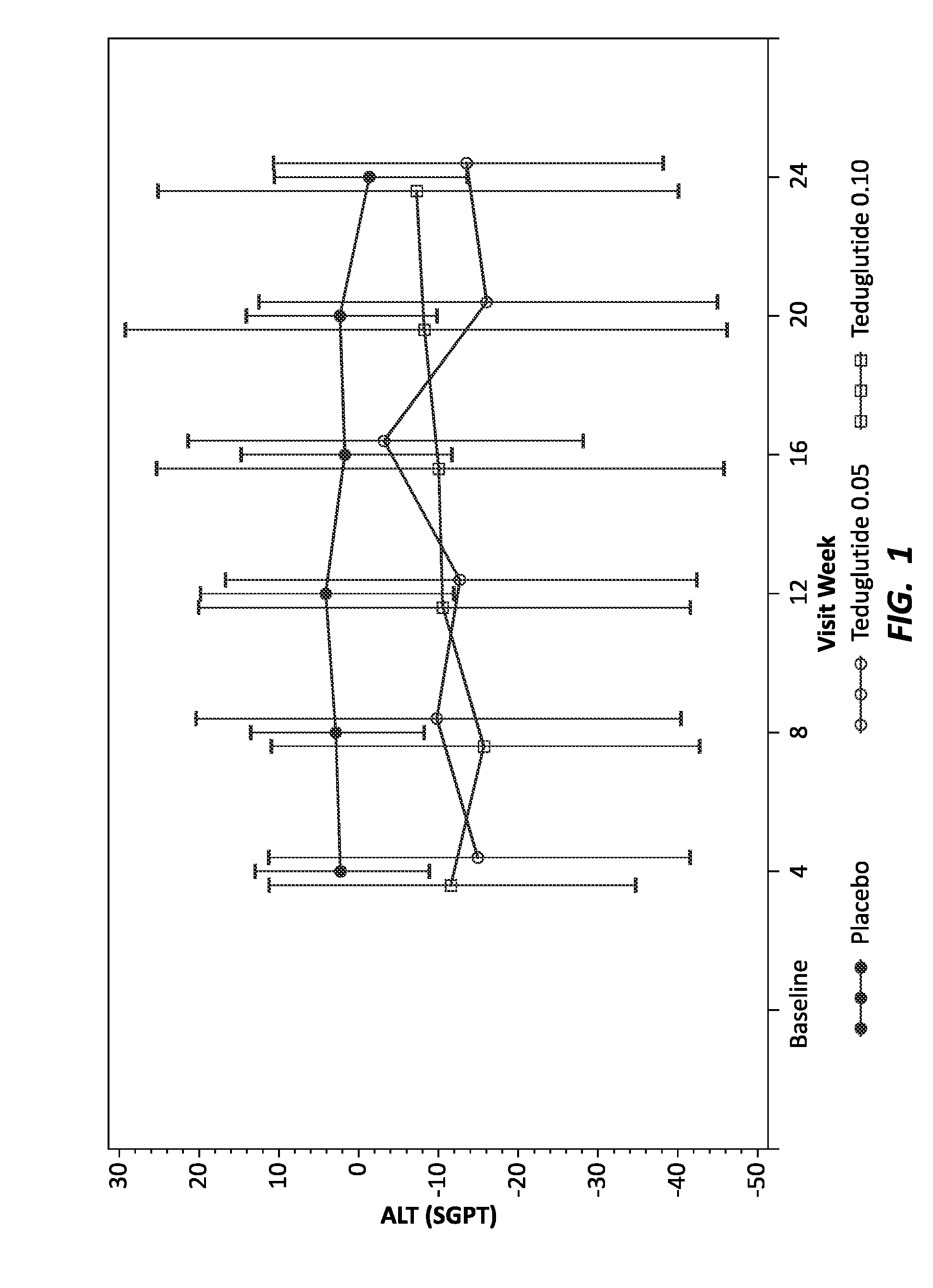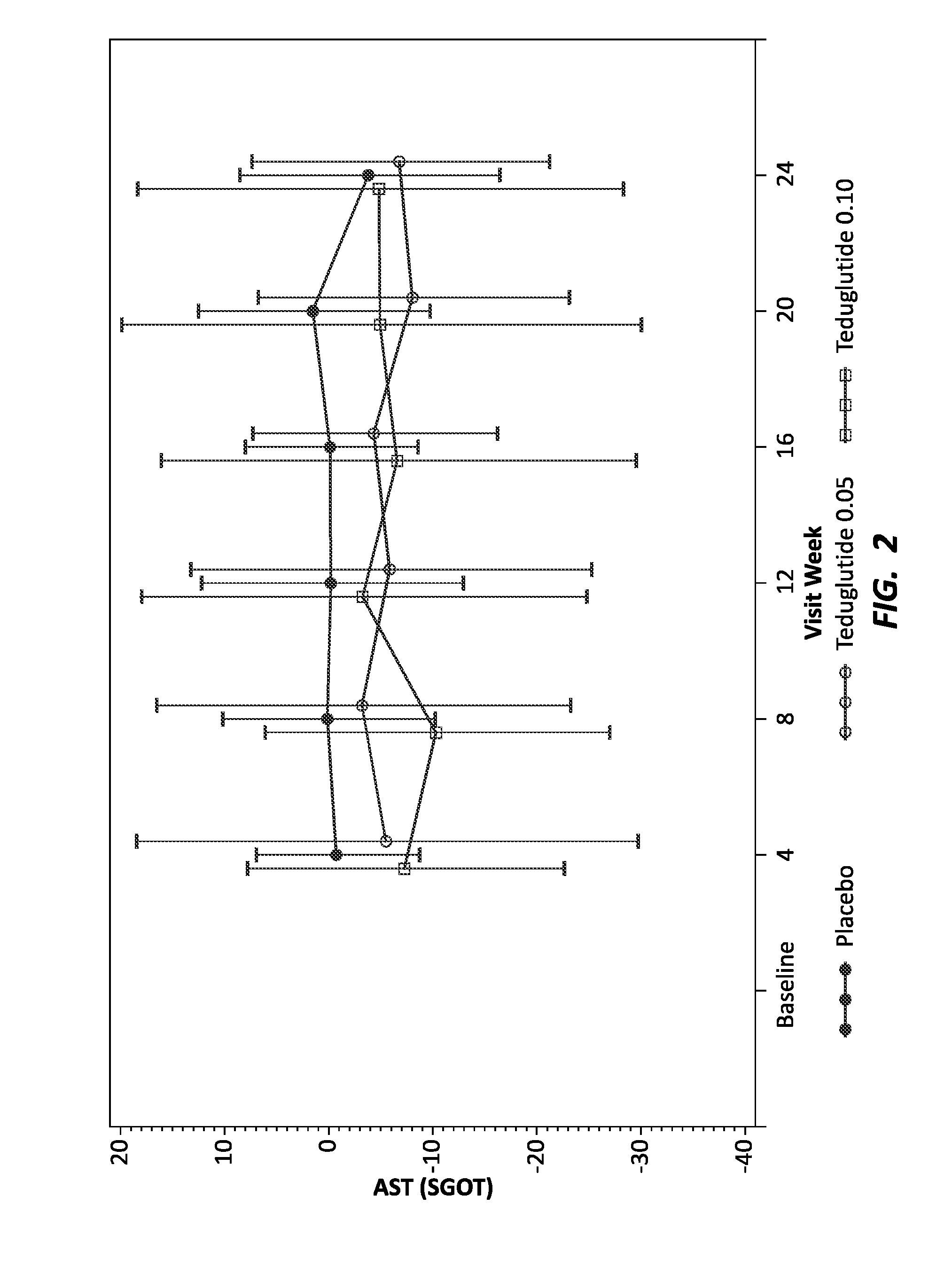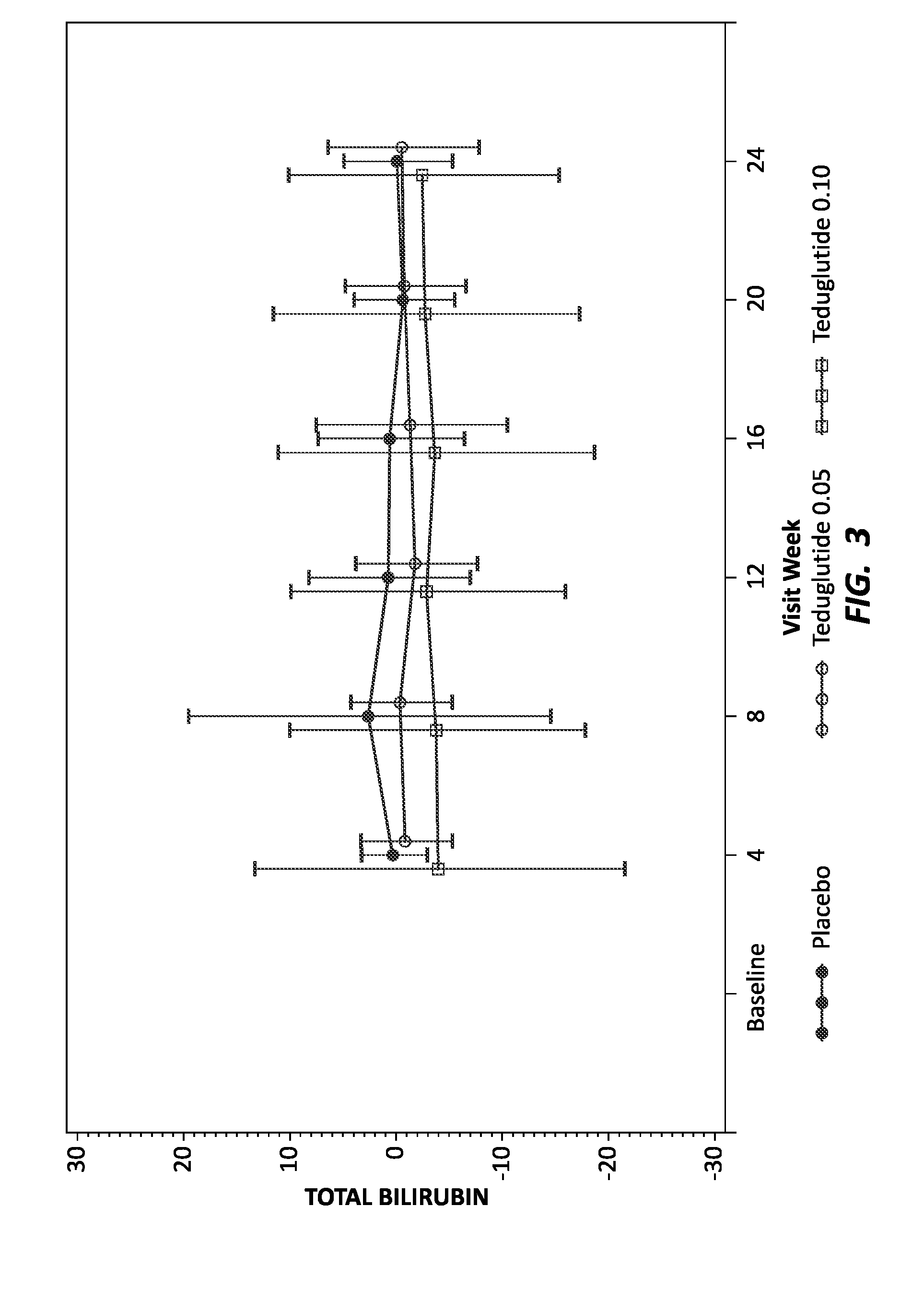Methods for treatment or prophylaxis of kidney or liver dysfunction
a technology for kidney or liver dysfunction and prophylaxis, which is applied in the field of treatment or prophylaxis of kidney or liver dysfunction, and can solve the problems of renal dysfunction, limited availability of pn to patients with intestinal failure, and impaired intestinal adaptation process of pn-associated liver dysfunction
- Summary
- Abstract
- Description
- Claims
- Application Information
AI Technical Summary
Benefits of technology
Problems solved by technology
Method used
Image
Examples
example 1
[0149]Human patients with short bowel syndrome were divided into three groups: a control group (16 total individuals) to receive placebo, an experimental group (35 total individuals) to receive teduglutide at 0.05 mg / kg / day throughout the study, and an experimental group (32 total individuals) to receive teduglutide at 0.1 mg / kg / day throughout the study. Patients were treated by subcutaneous injection of placebo or the appropriate dose of teduglutide. As individuals with short bowel syndrome are likely to experience associated liver and kidney disease, known biomarkers of liver and kidney function were monitored every four weeks, for 24 weeks. The liver biomarkers tested included total bilirubin, ALT and AST and ALP. The kidney biomarkers tested included urea nitrogen, creatinine and GFR. Before administration of placebo or teduglutide, diagnostic biomarker levels were tested to establish a baseline for each individual.
[0150]To visualize the effect of GLP-2 on the levels of the diag...
example 2
[0159]To further confirm the results of Example 1, a further study was conducted involving more individuals and additional diagnostic biomarkers. Human patients with short bowel syndrome were divided into two groups: a control group (43 total individuals) to receive placebo, and an experimental group (42 total individuals) to receive teduglutide at 0.05 mg / kg / day throughout the study. Patients were treated by subcutaneous injection of placebo or the appropriate dose of teduglutide. Known biomarkers of liver function were monitored every four weeks, for 24 weeks. The liver biomarkers tested included albumin, gamma glutamyl transferase, total bilirubin, ALT and AST and ALP. Before administration of placebo or teduglutide, diagnostic biomarker levels were tested to establish a baseline for each individual.
[0160]To determine the effect of GLP-2 on the levels of the diagnostic biomarkers, the average level of each biomarker was measured for the placebo and teduglutide treated groups for ...
PUM
| Property | Measurement | Unit |
|---|---|---|
| time | aaaaa | aaaaa |
| alkaline phosphatase | aaaaa | aaaaa |
| time | aaaaa | aaaaa |
Abstract
Description
Claims
Application Information
 Login to View More
Login to View More - R&D
- Intellectual Property
- Life Sciences
- Materials
- Tech Scout
- Unparalleled Data Quality
- Higher Quality Content
- 60% Fewer Hallucinations
Browse by: Latest US Patents, China's latest patents, Technical Efficacy Thesaurus, Application Domain, Technology Topic, Popular Technical Reports.
© 2025 PatSnap. All rights reserved.Legal|Privacy policy|Modern Slavery Act Transparency Statement|Sitemap|About US| Contact US: help@patsnap.com



